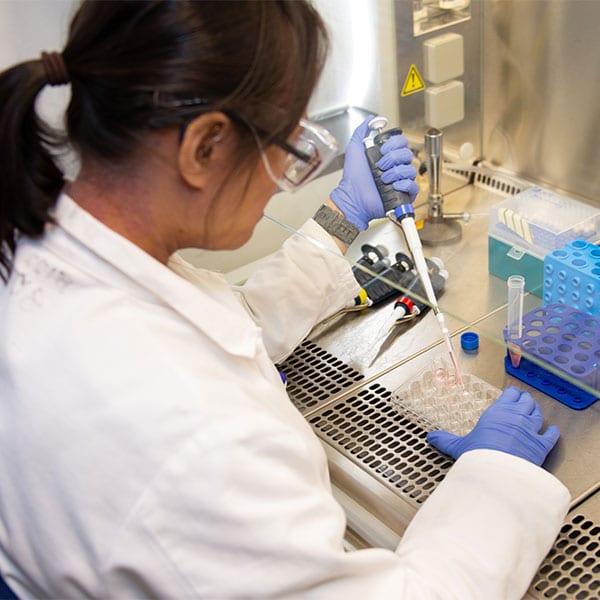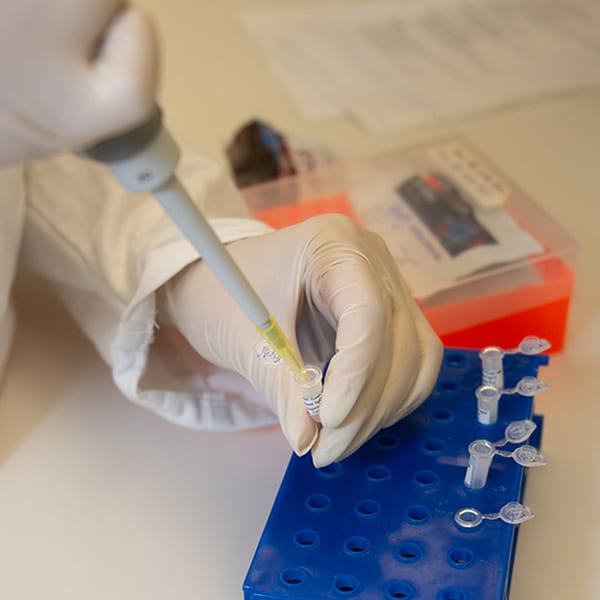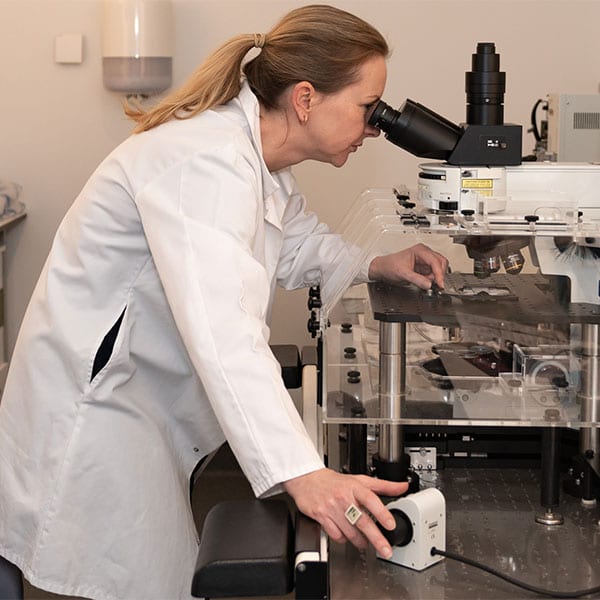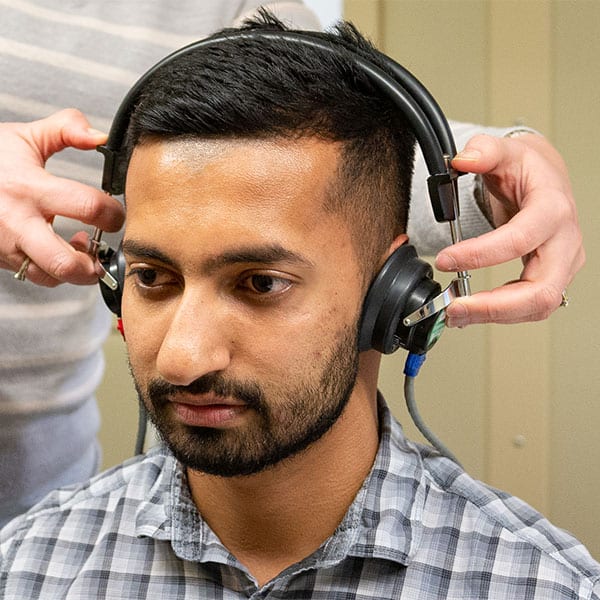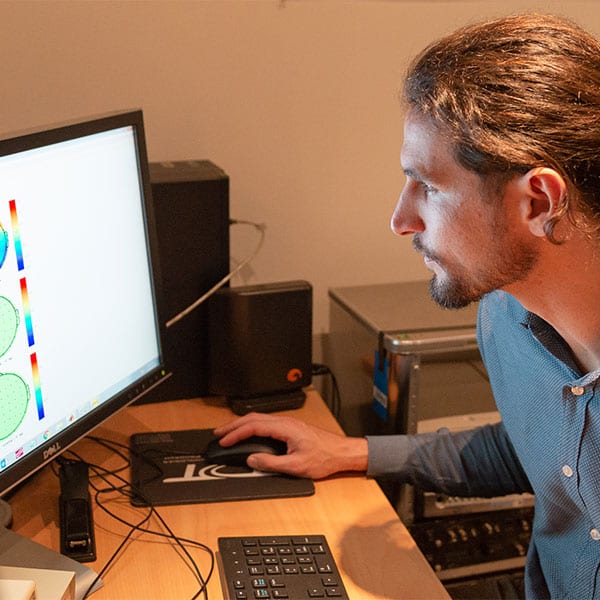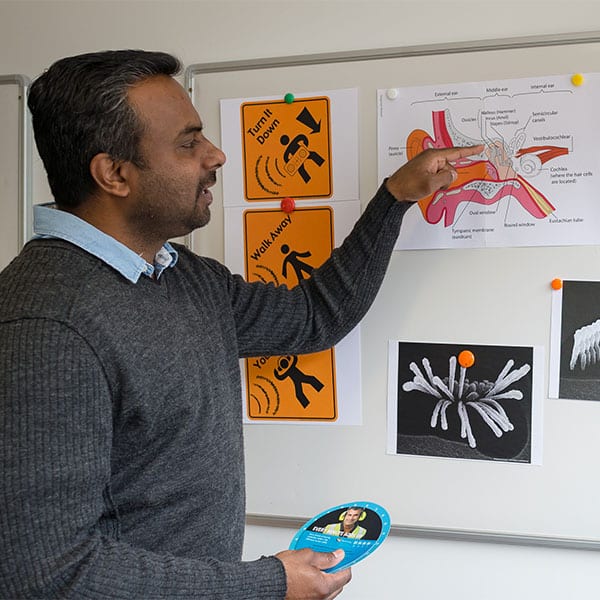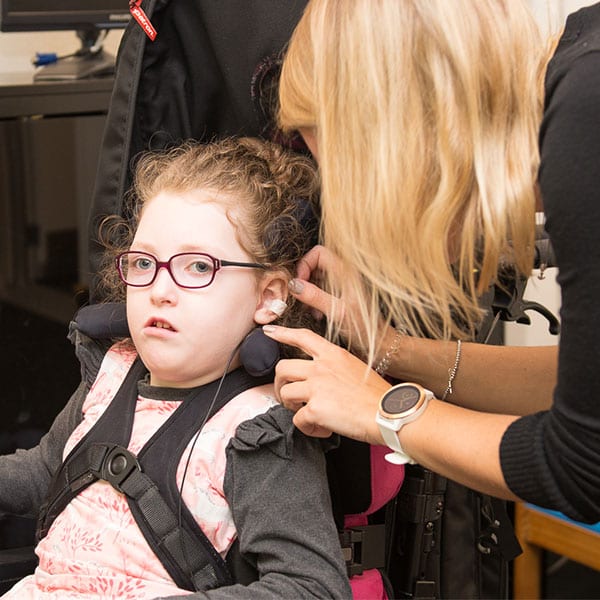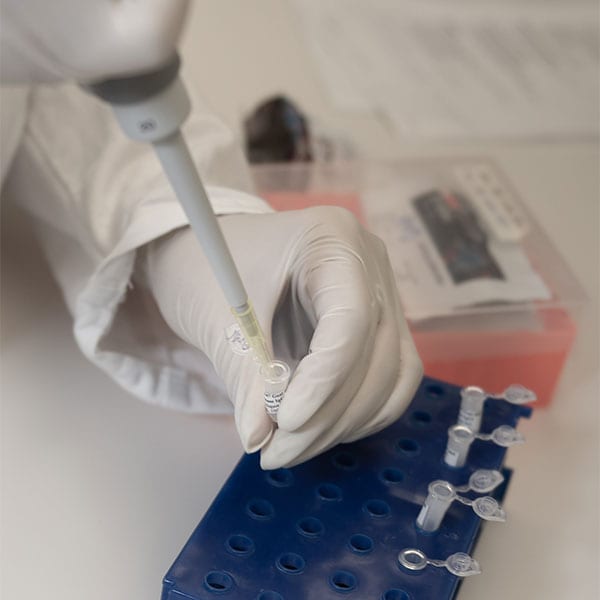Research Themes
Theme 1: Understanding Disease
Understanding the changes that occur in the inner ear and central auditory and vestibular pathways that lead to hearing and balance disorders is vital for the development of diagnostic and therapeutic approaches. The groups in the centre are well placed to provide a multidisciplinary platform of research into the mechanisms of auditory and balance disorders.
Expertise:
- Cochlear and central auditory pathobiology – A/P Srdjan Vlajkovic, Prof Peter Thorne and A/P Johanna Montgomery
- Human inner ear electrophysiology – A/P Greg O’Beirne and Dr Alison Cook
- Tinnitus – A/P Grant Searchfield, A/P Yiwen Zheng, Prof. Paul Smith
- Vestibular dysfunction – A/P Yiwen Zheng, Prof Paul Smith and A/P Cynthia Darlington
- Human auditory electrophysiology and central auditory processing disorders – Prof Suzanne Purdy, Prof Ian Kirk and Dr Bill Keith
- Cerebellar circuits and adaptive filtering – Prof JohnMontgomery
- Avian auditory processing and song production –Dr Fabiana Kubke and Prof Martin Wild
- Human Brain Bank for studying neurodegenerative disorders in the Centre for Brain Research at the University of Auckland – Distinguished Prof, Sir Richard Faull and A/P Henry Waldvogel
Theme 2: Diagnostics and Biomarkers
Better and more sensitive diagnostic indicators are essential to identify early injury and disease in the auditory and vestibular systems to enhance therapeutic opportunities for interventions. Our researchers provide multiple approaches that we can capitalise on to identify molecular, structural and functional biomarkers and diagnostic indicators of auditory and vestibular disease or injury.
Expertise:
- Metabolomics – A/P Yiwen Zheng, Prof Paul Smith and their collaborators in China Pharmaceutical University.
- miRNA – Prof Peter Thorne and his collaborations with Brain Research New Zealand
- Magnetic Resonance Imaging (MRI) – Prof Peter Thorne, Prof Suzanne Purdy, Prof Ian Kirk, A/P Grant Searchfield
- Human behaviour and electrophysiology – A/P Greg O’Beirne, Prof Suzanne Purdy, A/P Grant Searchfield, Dr Bill Keith
- Electrophysiology in animal models of vestibular dysfunction – Prof Paul Smith and A/P Yiwen Zheng
- Vestibular and balance diagnostics and rehabilitation – Prof Denise Taylor and Dr Rachael Taylor
Theme 3: Therapies and Prevention
The overall objective of the Eisdell Moore Centre under this theme is the development of novel therapies for inner ear disorders and tinnitus, which are not treatable with prosthetic devices, hearing instruments and cochlear or brainstem implants. Here we will combine efforts across the universities and with others within Brain Research New Zealand and the Centre for Brain Research to look at pharmacological and cell-based approaches to prevention of inner ear damage.
Expertise:
- Small molecule therapies – A/P Srdjan Vlajkovic and Prof Peter Thorne and their collaborators at the Bionics Institute in Melbourne
- Stem cell therapies – A/P Srdjan Vlajkovic and Prof Peter Thorne and collaborators in the Centre for Brain Research (Associate Professor Bronwen O’Connor ) and the University of Melbourne (Dr Bryony Nayagam)
- Behavioural therapies for Tinnitus – A/P Grant Searchfield
- Transcranial brain stimulation therapies in human and animal model – A/P Yiwen Zheng, Prof Paul Smith
- Chemical and mechanical delivery of molecular compounds to the inner ear – collaborations the Centre has with the MedTech Centre of Research Excellence.
Theme 4: Novel Technologies
This research theme will look to build relationships with industry partners to develop and translate technology into clinical practice. It will also examine social factors for the use of assistive devices to identify factors that may prevent the uptake of technologies and it will look to improve the access to assistive devices through the development of mobile technologies that provide clinical, diagnostic and rehabilitative tools for hearing loss.
Expertise:
- Assistive devices and home-based training – A/P Grant Searchfield, Dr Bill Keith and their collaborations with multinational industry partners
- Aural rehabilitation in the senior population and positive hearing aid outcomes – Dr Mary O’Keefe and A/P Rebecca Kelly-Campbell and her partnership with Bay Audiology
- Cochlear implants – A/P Holly Teagle
Theme 5: Auditory and Vestibular Brain Plasticity
The plasticity of the auditory and vestibular systems, that likely underpins the success of many current therapies, like the cochlear implant, is being harnessed in many therapeutic approaches. These are designed to augment the natural plasticity and enhance outcomes through non-invasive stimulation (such as transcranial magnetic stimulation) and specific behavioural training.
Expertise:
- Peripheral Neuroplasticity – Prof Peter Thorne, A/P Johanna Montgomery, Dr Meagan Barclay
- Central Neuroplasticity – A/P Grant Searchfield, Prof Suzanne Purdy
- Vestibular Neuroplasticity – A/P Yiwen Zheng, Prof Paul Smith
- Adaptive filtering of sensory inputs – Professor John Montgomery
- Auditory and vocal circuitry in songbirds – Dr Fabiana Kubke and Prof Martin Wild
Theme 6: Population Studies
The World Health Organisation considers that over 50% of hearing loss is preventable. A significant focus of the centre will be on the prevention of hearing loss and balance disorders, informing health care management which prevents hearing loss and balance disorders as well as increasing the professional and community understanding of these disorders.
Expertise:
- Noise exposure in our environment and soundscapes – Dr David Welch
- Development of educational programmes on the consequences of noise exposure for schools (Dr David Welch) and the workplaces (Dr Ravi Reddy)
- Ear disease and hearing loss in Maori populations – Cynthia Brown-Mendes, Alehandrea Manuel, A/P Grant Searchfield
- Ear disease and hearing loss in Pacific Islands and Pacific populations in New Zealand – Elizabeth Holt, A/P Judith McCool, Prof Suzanne Purdy, Prof. Peter Thorne
Theme 7: Clinical Trials and Population Health Interventions
This research theme will focus on utilising the University and private clinics and DHB audiology and ENT clinics to establish clinical trials for interventions that have been developed in the previous theme areas, including population health interventions in the community and in industry. Research opportunities will extend to new service provision models, which will explore conventional client-centred practice, e-health and pervasive hearing healthcare. In partnership with Māori the centre will explore new models of service delivery that are acceptable and effective for Māori.
Clinical partnerships
- Sound Skills Ltd
- The University of Auckland Hearing and Tinnitus Clinic
- The University of Canterbury Speech and Hearing Clinic
- Brain Research New Zealand Dementia Prevention Research Clinic
- New Zealand Dizziness and Balance Clinic
- Listen Up programme run by the University of Auckland and the Pindrop Foundation
- Dangerous Decibels
- The Hearing House
